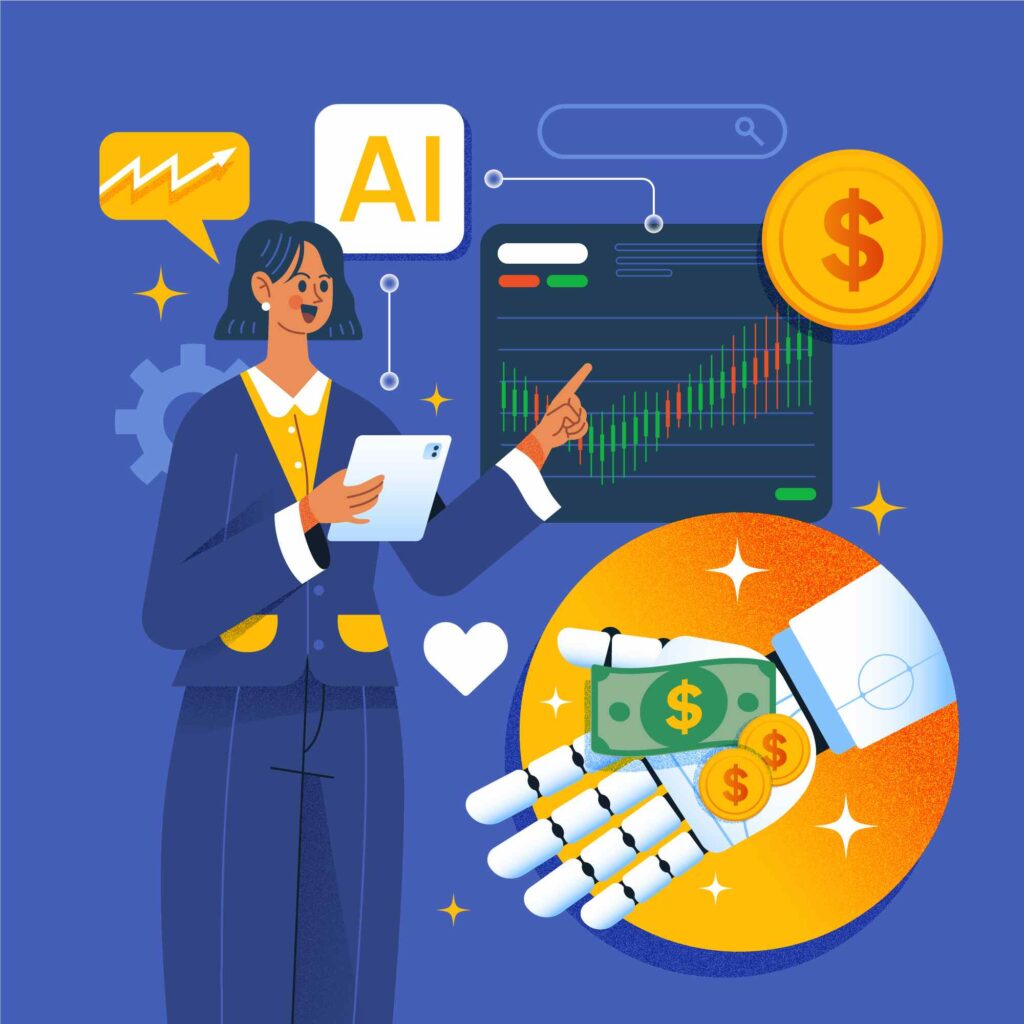
AI CERTS
6 months ago
AI-Driven Finance Learning: Preparing for the Future of Financial Services
As Artificial Intelligence (AI) transforms the financial sector, professionals and organizations are increasingly recognizing the need for specialized AI-driven finance learning. AI has made significant strides in automating processes, improving decision-making, and enhancing customer experience within the finance industry. To stay competitive, finance professionals must understand and leverage AI capabilities, from predictive analytics and algorithmic trading to risk management and fraud detection.
This article explores the impact of AI in finance, key skills developed through AI-driven finance learning, real-world applications, and the benefits of integrating AI into finance education.
The Role of AI in Modern Finance
AI is reshaping the finance industry by enhancing efficiency, accuracy, and security. Traditional methods of managing data, assessing risk, and making investment decisions are being enhanced with AI algorithms, which can analyze vast datasets in real time, make predictive analyses, and adapt to market changes instantly.
AI technologies like machine learning (ML), natural language processing (NLP), and robotic process automation (RPA) are helping financial institutions streamline customer service, optimize trading strategies, and manage complex regulatory requirements. This transformation makes AI a critical tool for finance professionals, and learning to use these tools can open up a world of new opportunities.
Related Reading: For further insights on how AI is impacting finance, see Forbes’ article on AI in financial services.

Core Skills in AI-Driven Finance Learning
AI-driven finance learning covers a range of skills essential for navigating AI in financial environments. These include technical skills in AI and data science, as well as an understanding of finance-specific applications.
1. Data Analytics and Interpretation
A primary skill in AI-driven finance learning is data analytics. Finance professionals learn to gather, process, and analyze large datasets to extract insights and make data-backed decisions. This is crucial for tasks like portfolio management, customer segmentation, and credit scoring.
2. Predictive Analytics and Machine Learning
Machine learning algorithms can identify patterns in historical data, helping finance professionals forecast trends and make informed predictions. Predictive analytics can be used for stock price forecasting, customer behavior prediction, and risk assessment, making it a vital skill for finance professionals in AI-driven environments.
3. Natural Language Processing (NLP)
NLP allows finance professionals to analyze textual data, such as news articles, social media sentiment, and financial reports. With NLP, professionals can derive insights from unstructured data sources, enabling them to monitor market sentiment and identify opportunities.
4. Algorithmic Trading and Automated Decision-Making
Algorithmic trading uses AI to automate trading based on pre-set parameters, helping finance professionals make rapid, data-driven trading decisions. AI-driven finance learning includes strategies for developing, testing, and deploying trading algorithms, an essential skill for those working in investment banking and asset management.
External Resource: Learn more about algorithmic trading in Investopedia's guide to algorithmic trading.
Real-World Applications of AI-Driven Finance Skills
AI-driven finance skills have practical applications across the finance industry, from automating customer interactions to enhancing fraud detection. Here are some real-world applications where AI is already making a significant impact:
1. Fraud Detection and Prevention
AI algorithms can identify unusual transaction patterns, flagging them for further investigation to prevent fraud. Machine learning models analyze data from past fraudulent transactions to recognize and predict fraudulent activity, enhancing security for financial institutions.
2. Customer Relationship Management
With the help of AI-driven chatbots and virtual assistants, financial institutions are improving customer engagement and providing 24/7 support. AI in customer relationship management (CRM) helps finance teams to quickly resolve customer inquiries, improving customer satisfaction and loyalty.
3. Risk Assessment and Credit Scoring
AI-driven models can assess a customer’s creditworthiness by analyzing various factors, including spending habits, income patterns, and previous borrowing behavior. This allows for more accurate credit scoring, risk assessment, and faster loan approval processes.
4. Regulatory Compliance and Reporting
AI helps finance professionals manage compliance by monitoring transactions for suspicious activity, generating reports for regulatory bodies, and ensuring adherence to industry standards. This application of AI reduces the likelihood of human error and minimizes compliance risks.
Related Reading: For more on how AI aids regulatory compliance, read Deloitte’s insights on AI in finance.
Benefits of AI-Driven Finance Learning for Organizations and Individuals
AI-driven finance learning offers numerous advantages, making it a valuable investment for both organizations and professionals.
1. Enhanced Decision-Making Capabilities
AI-driven learning provides finance professionals with the tools to make data-informed decisions. By mastering predictive analytics and algorithmic trading, professionals can assess investment risks, forecast financial trends, and make timely decisions to maximize returns.
2. Increased Efficiency and Productivity
AI-driven finance skills enable professionals to automate repetitive tasks, such as data entry and report generation. This allows finance teams to focus on strategic decision-making, increasing productivity and reducing operational costs.
3. Improved Risk Management
AI can improve an organization's ability to identify and manage risk. With AI-driven risk assessment tools, finance professionals can monitor market conditions, analyze investment risks, and implement strategies that protect against potential losses.
4. Competitive Advantage
Organizations that invest in AI-driven finance learning gain a competitive edge by staying at the forefront of technological advancements. AI proficiency allows companies to provide faster services, better customer experiences, and improved investment strategies, differentiating them in a competitive market.
Key Considerations for Implementing AI in Finance
For organizations considering the integration of AI, several critical factors must be addressed to ensure effective implementation and management.
1. Data Privacy and Security
Given the sensitive nature of financial data, privacy and security are top priorities. AI-driven finance learning includes training in data handling best practices and compliance with regulations like GDPR and CCPA. Understanding data privacy laws helps protect both organizational data and customer trust.
2. Ethical Considerations in AI
AI in finance must be implemented ethically to avoid issues such as bias in credit scoring or unfair trading practices. Ethics in AI-driven finance training teaches professionals how to mitigate bias and ensure AI systems make fair, objective decisions.
3. Integration with Existing Systems
AI solutions must integrate seamlessly with current financial systems to maximize their effectiveness. Finance professionals trained in AI learn how to work with IT departments to incorporate AI into legacy systems, ensuring a smooth transition and minimal disruption.
4. Continuous Learning and Adaptation
AI is a rapidly evolving field, and ongoing education is essential. Professionals with AI-driven finance training stay updated on the latest trends, ensuring their skills remain relevant and adaptable to new challenges and opportunities.
The Future of AI in Finance
As AI technology continues to evolve, its role in the finance sector is expected to grow. Here are some of the anticipated trends in AI-driven finance:
- Increased Use of AI for Sustainable Investing: AI can help finance professionals analyze environmental, social, and governance (ESG) metrics to identify sustainable investment opportunities.
- Real-Time Financial Decision-Making: As AI algorithms become faster and more sophisticated, real-time analytics will allow finance professionals to make quick, informed decisions, from trading stocks to assessing risk.
- Expansion of AI in Fraud Detection: Future AI models may leverage advanced neural networks and real-time data streams to detect fraud even more accurately and at greater scale, protecting organizations and customers.
With these advancements, the demand for AI-driven finance learning is only expected to grow. For finance professionals, staying ahead of AI trends will be crucial to maintaining relevance in this dynamic field.